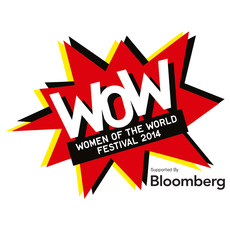On Saturday and Sunday, I spent an exhilarating weekend at WoW (Women of the World festival) in London. It was an exhilarating two days… enough information and questions for two or three blog posts. Yesterday, I shared 5 thoughts from WoW and today I would like to share a few more.
1. The power of transformational advocacy
Over the last few months, I’ve been exploring what Gospel advocacy looks like particularly through the lens of Jesus in association with my role with GB England & Wales. From exploring His example, I believe that we are called to highlight injustice but to do it through the lens of transformational advocacy.
Transformational advocacy is coming alongside God’s people, particularly those who are experiencing injustice and denied their God-given value and worth, in a Gospel way. Through our words, actions and/or presence, we will reflect God’s truth, love, righteousness and hope into situations to bring about transformation in lives, communities, culture, institutions and society. In my eyes, this is the transformational advocacy which we are called to.
The sessions which I found most inspiring were those which not only highlighted the negative face of injustice but showed how we could transform the world we live in by modelling a hope-filled alternative. East African feminist Jessica Horn summed this up perfectly in the Who Owns Your Body? panel on Sunday: ‘We need to focus on building a positive affirmative framework. It helps create the world that we want to live in.’
I passionately believe that we need to be the change that we want to see in the world; it starts with us – our actions, words and lifestyle.
2. Faith-bashing
Unfortunately as is often the case at this type of conference, there was very little positive discussion about how faith interacts with feminism. There was one specific panel Women of Faith pulled together by the Women Interfaith Network. This multi-faith panel of speakers included Dina Brawer from the Jewish Orthodox Feminist Alliance, Reverend Sally Hitchiner and Polly Harrah, founder of The Sharan Project. Sally spoke very well demonstrating the complexities in the Christian church while explaining how she felt empowered by her faith.
Despite this in many of the other panels, faith (in particular religion) was discussed in a very negative way – this made me uncomfortable. In many ways, I agree that religion is patriarchal and misogynistic (although broad sweeping generalisations are unhelpful). But in my eyes, faith is very different; religion is based on abstract rules and regulations in institutions and structures but faith is based on my relationship with Jesus. And my faith enables, empowers and releases me as a woman; this is my undeniable truth.
For a number of years, I have been tirelessly harangued in secular feminist networks when I reveal that I’m a Christian. In many incidences, I have asked an honest question about the Bible and immediately had a response like ‘the Bible is rubbish.’ This halts any further discussion and derails conversation from my the primary question.
I’m tired of this especially when many of the critics do not have a nuanced understanding of faith and religion. I’m really tired of it. I’m desperate to educate secular feminists that Christian feminism is not an oxymoron.
3. Knowing where we came from
As some of you know, I was a gender historian in a past life. Two of my highlights of my PhD research was interviewing over 70 women who had attended secondary school during World War II and writing about Isabella Tod, a formidable activist in 19th century Belfast. I’m still passionate about uncovering the stories of women who a male-centred history has relatively forgotten.
This was a recurrent theme which was brought up time and time again over the course of the weekend. We need to know where we came from; to educate ourselves about the struggles and triumphs of the women who came before us. There are a number of great websites and books that can help us do it. For example, the newly launched The Alabaster Jar is a great website which is uncovering forgotten women leaders throughout church history.
4. The power of social media
In many ways, social media is amoral; we have the power to choose if we want to use it for good or for bad. Throughout WoW, there were poignant examples of the destructive and constructive force of social media. Many campaigners and activists spoke of the horrific nature of the trolling which they had to endure; the cost of speaking out for women’s rights. Interestingly a male academic spoke of his experience of trolling. He received tweets and comments about his ‘crap’ speaking skills or research but the main difference was, the insults were never related to his personal life or appearance. On the other hand, Caroline Criado-Perez, received horrific and vile threats and personal abuse for her campaigning to get female historical figures on our banknotes.
On a positive note, social media has been incredibly powerful in the fourth wave of feminism. As we speak, the viral No More Page 3 campaign is speeding towards 200k signatures. Using social media carefully can help spread awareness about an issue and mobilise people fast.
Most of us have social media sites on facebook, twitter, Instagram etc. Do we use them in a constructive way? Malala challenged all of us to use social media in a positive way… not just ‘liking’ selfies of ourselves.
Are we harnessing the positive power of social media to help cause transformation?
The annual Women of the World (WoW) Festival in London’s Southbank Centre is definitely one of the highlights of my year. WoW is an eclectic festival of talks, debates, music, film and comedy celebrating women (you can view all the talks online here).


